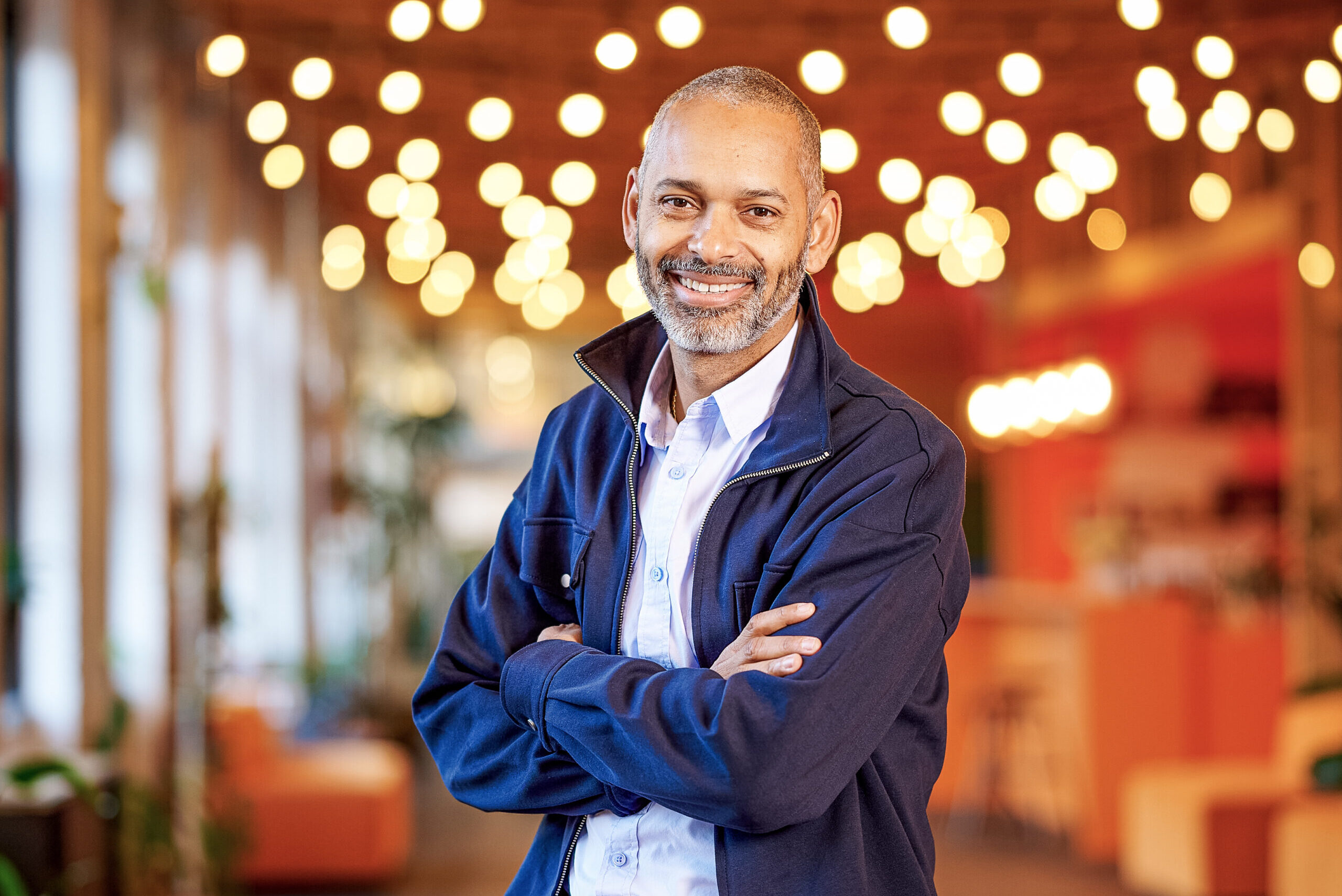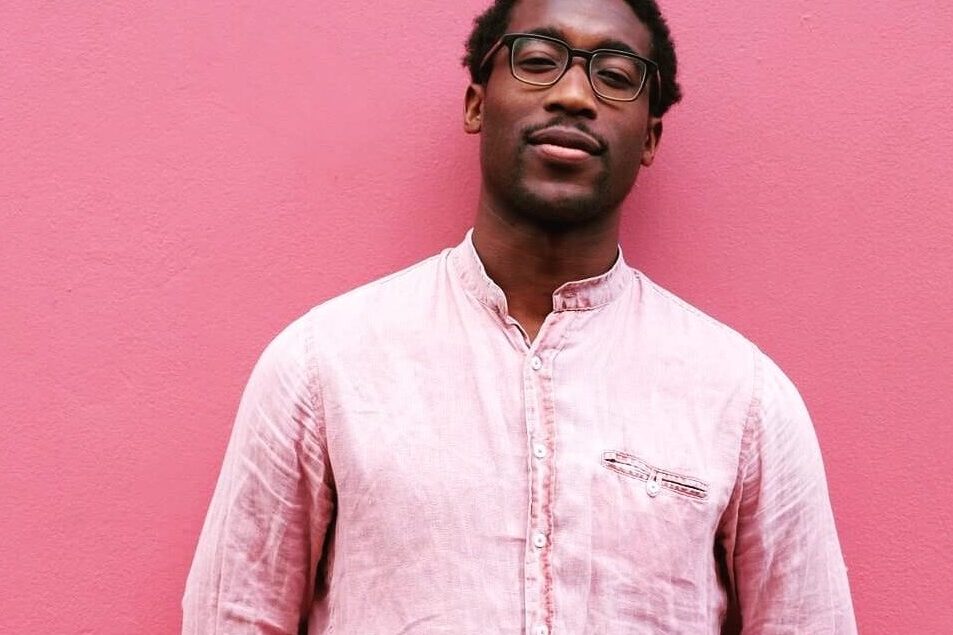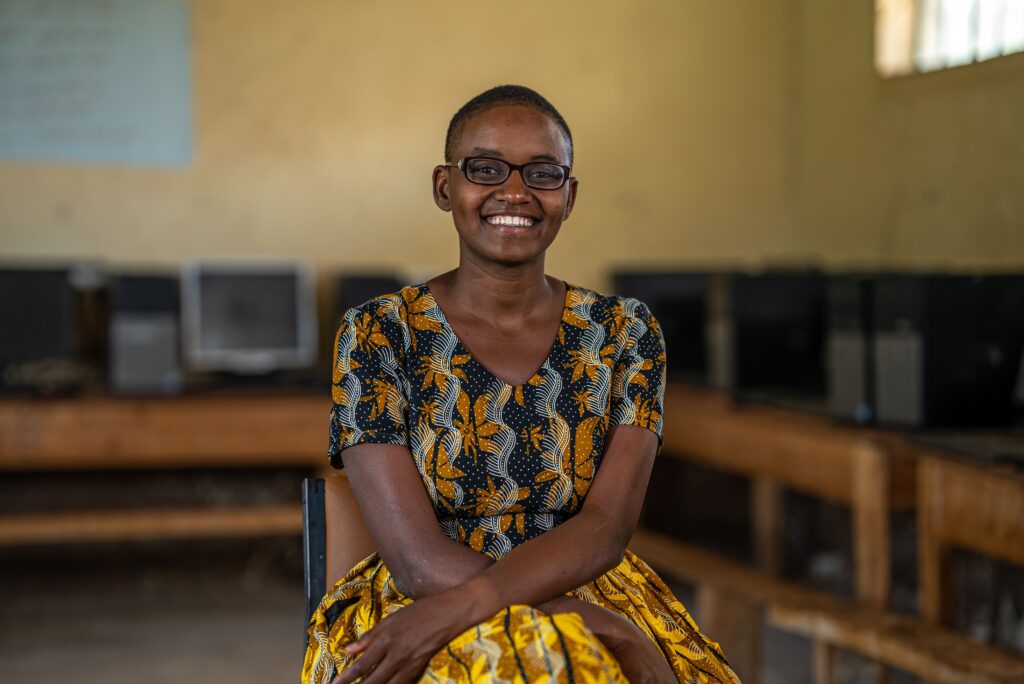Here’s A Roundup Of Our Favorite POCIT Interviews This Year

This year has been a rollercoaster for the tech industry, from the rise in Black VCs investing in Black & brown tech founders to the unexpected tech layoffs that shook the industry. As we subtly adjust to the “new normal,” it is safe to say that this year has been a drastic year of change for everybody.
No matter how good or bad your year has been, here are some of our favorite interviews with Black game changers in the tech space that have reshaped our definition of success. So let’s get into it.
Richard Arroyo – Ubisoft Creative Director

Last month, we sat down with Creative Director at Ubisoft, Richard Arroyo. In the interview, Arroyo reflected on his decades-long career and the tips and advice he would give those looking to follow in his footsteps.
Over the years, Arroyo’s work has seen him work across various sectors, from computer animation design to business strategy and on-set direction. As a result, the US-born Montrealer has developed an extensive skill set that has helped him get to where he is now.
“I’ve been doing this for 24 years, maybe even longer, and [I learned that] things will be challenging, and you’re not always going to get the right opportunity of the fair opportunity. That’s why I believe you [need to] craft your own future. I want people to see my talent, my skills, what I bring to the table, and I never really focused on my [skin] color,” he said in an exclusive interview with POCIT.
To read the full interview, click here.
Kélian Somon – Self-Taught Full-Stack Developer

Since teaching himself how to code just after graduating, Kélian Somon has worked to become one of the few Black software engineers in his industry.
Despite graduating with a master’s in business administration, Somon managed to rise to the top by teaching himself how to code using free platforms online. In the interview, Somon spoke about the many challenges he faced to get to where he is now and his life-altering decision to make a career switch.
“I’ve always been intrigued by technology, but I have a business background – I graduated in 2020 with a master’s in business administration. I’ve never been taught anything about computer science-related topics, but I’ve always been intrigued by it,” Somon said.
“Internet is the ultimate equalizer in today’s society, at least if you can access the internet as easily as we do here. So use it to your advantage.”
To read the full interview, click here.
Isoken Igbinedion – CEO of Parfait

Innovator, creative, and #BossGirl, Isoken Igbinedion, is the CEO and co-founder of Parfait. The Black-owned company uses AI and facial recognition to provide consumers with wig products and has reshaped how many women purchase their wigs.
The company built a 10K+ waitlist before launching and managed to create a community that allows women to see technology and beauty as one. After being exposed to the dangers of chemical relaxers at a very young age, Igbinedion decided to create hair products that were made by and tailored to helping Black women.
“After years of bad experiences with stylists and online wig companies and thousands of dollars wasted trying to find the right hair and wig products, I realized there had to be a better way to source, customize and install my wigs and extensions,” said Igbinedion.
“Our goal is to be the first to make major progress in improving product and service outcomes for marginalized communities, starting by building technology designed to serve women and people of color.”
To read the full interview, click here.
Ruben Harris – Founder of Career Karma

At the start of this year, we sat down with the man everyone was and still is talking about. As the founder of Career Karma, Ruben Harris knows precisely what career tips and tricks are needed to excel within the tech space.
Approximately three million people per month visit Ruben’s platform in search of career advice. The website matches each user with a job training program specifically tailored for them. It also helps them access a community of thousands of people so they can get the support they need to complete their training program and find the best job for themselves.
In the interview, Harris spoke about the struggles of imposter syndrome and the importance of founders of color recognizing the power of being themselves.
“What I want to say is that you are enough, don’t try to be somebody else or communicate that you’re somebody else because whoever you are is your superpower, and any time that you feel yourself deviating from your core, that’s probably a bad idea,” Harris said.
“Imposter syndrome is a real thing but you’re not an imposter. Perfection is the enemy of execution, so I feel that people that are often underestimated feel like they have to do more than everybody else, but listen, go for it.”
To read the full interview, click here.
Nelly Cheboi – Founder of TechLit Africa

Nelly Cheboi is the founder of TechLit Africa, a company that redistributes recycled technology to build computer labs in African schools.
Cheboi was exposed to the struggles of poverty at a very young age after growing up in a rural part of Kenya. Despite having no computer access and being forced to take on the role of the second mother to her younger sister, Cheboi landed a scholarship to study computer science in Illinois.
After completing her course, Cheboi returned to Kenya to give back to the children in her community. This is when TechLit Africa was born. The school, based in the heart of Kenya, teaches young children the necessary skills needed to secure remote or location jobs.
We sat down with Cheboi to discuss her journey to becoming a founder and being a young Black woman in the STEM sector.
“I think because I know firsthand how awful poverty is, and I see it all the time here – that fuels me. It’s the most dehumanizing experience,” Cheboi said.
“I came up with this idea to build a school, and the idea for this school was mainly focused on being a source of income for the family. The kids would go to this school and pay about $10 a month, and that money is enough to keep the school running, pay for the teachers, pay for the food by stationaries, whatever was left leftover could support my family.”
To read the full interview, click here.



